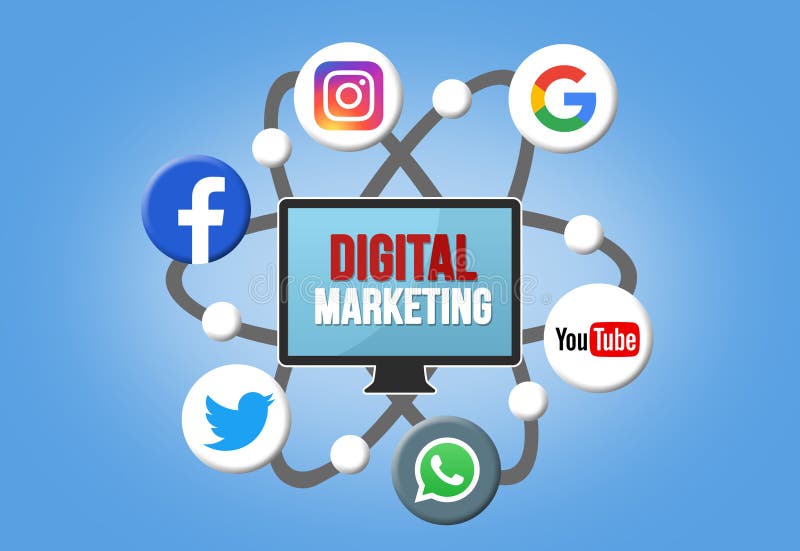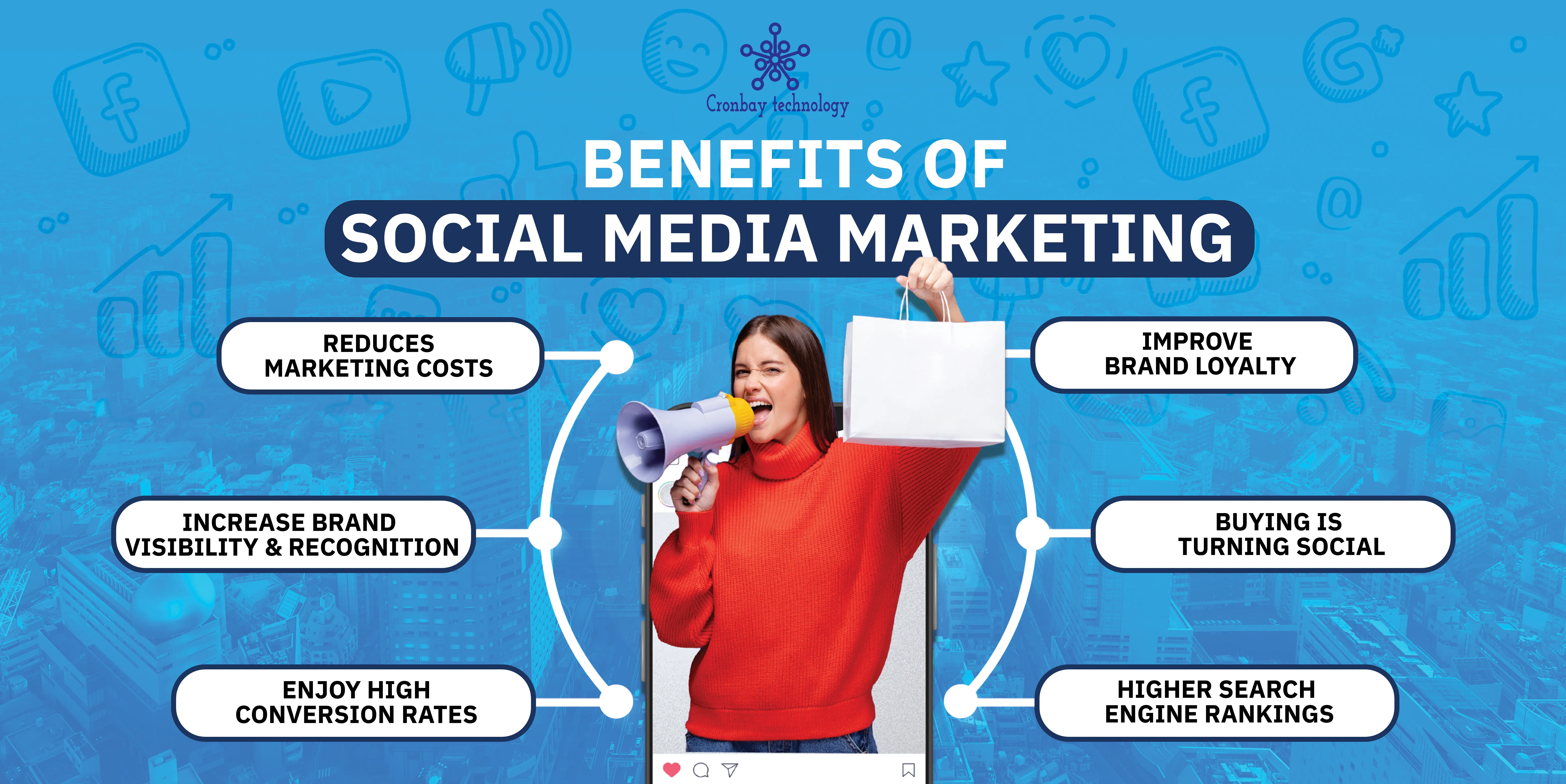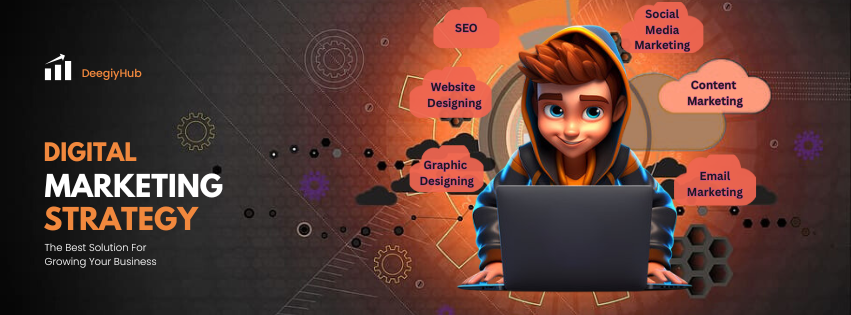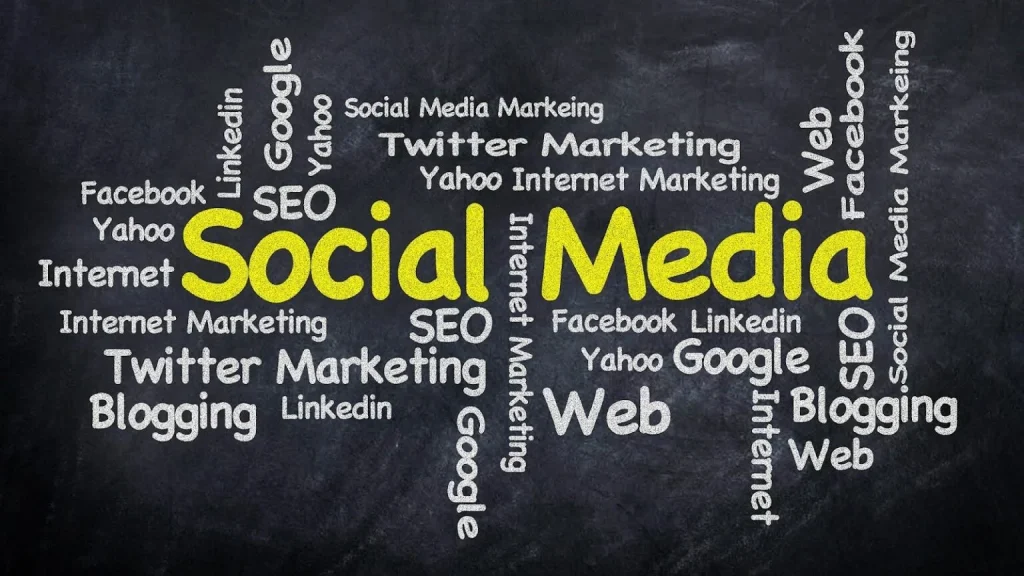Introduction
Social Media Marketing Marketing In Digital Marketing 2025 (SMM). leverages social media marketing platforms to build a brand, increase sales, and drive website traffic. This is a specific type of digital marketing that focuses on using social media platforms (like Facebook, Instagram, X (formerly Twitter), LinkedIn, etc.) to build brand awareness, engage with customers, generate leads, and drive sales. It involves creating and sharing content, responding to comments and messages, and running targeted advertising campaigns on these platforms.
Social media marketing In Digital Marketing 2025 (SMM) is a subset of digital marketing that specifically focuses on using social media marketing in Digital Marketing 2025 platforms for marketing purposes. While digital marketing encompasses all online marketing efforts, SMM is a specialized area that leverages social media to achieve specific marketing goals.
In essence, SMM is a tool within the larger toolkit of digital marketing. It’s a key component of a comprehensive digital marketing strategy, but it’s not the only one. Digital marketing aims to connect with audiences across various touchpoints, while social media marketing focuses on engaging with them on social platforms.
In 2025, digital marketing agencies are leveraging influencer partnerships, AI-powered recommendations, and shoppable content to drive sales. Platforms like make it easier for brands to connect with relevant influencers, streamlining the campaign process. This article explores how influencer marketing is reshaping social commerce, emerging marketing trends, and how businesses can maximize their success.
The Power of Social Media Marketing: And cant ignore it,
In today’s fast-paced digital world, social media has transformed from a simple networking tool into a powerful marketing platform. Whether you’re a small business owner, an entrepreneur, or part of a large corporation, social media marketing (SMM) is no longer optional—it’s essential.
Key Aspects of Social Media Marketing:
Content Creation:
Developing and sharing high-quality content, including text, images, videos, and stories, to engage the target audience.
Knowledge of your audience:
What platforms they use, when they go on them and why, what content they like, who else they’re following, and more.
Engagement:
Responding to comments and messages, interacting with followers, and building a community around the brand.
Advertising:
Running targeted social media ads to reach potential customers and drive conversions.
Analytics:
Monitoring and analyzing social media performance to measure success and optimize strategies.
Platform Choice:
Identifying the most effective social media platforms for the target audience.

Strategy Development:
Creating a comprehensive social media marketing plan with specific goals, tactics, and KPIs.
Consistency and Long-Term Focus:
Maintaining a consistent brand voice and presence on social media over time.
Benefits of Social Media Marketing:
- Brand Building: Establishing a brand identity and building brand awareness.
- Increased Sales: Driving traffic to a website or store and encouraging purchases.
- Community Building: Fostering relationships with customers and building a loyal following.
- Cost-Effectiveness: Compared to traditional advertising, social media marketing can be a more affordable way to reach a large audience.
- Massive Reach: Over 4.5 billion people use social media worldwide. That’s more than half the global population—and it’s still growing. This gives businesses access to an enormous, diverse audience.
- Customer Engagement: Social media breaks down the barrier between brands and consumers. It allows for real-time interaction, customer service, and authentic connections.
- Valuable Insights: Tools like Meta Business Suite, X Analytics, and LinkedIn Insights provide data on user behavior, ad performance, and engagement metrics, helping refine your strategy.

Trends to Watch in 2025
Short-Form Video Dominance
Reels, Shorts, and YouTube shorts continue to outperform static content.
AI & Automation Tools
Chatbots, AI-generated content, and smart scheduling tools are enhancing efficiency.
Social Commerce
Direct selling through platforms like Instagram Shops and TikTok Shop is growing fast.
Authenticity Over Perfection
Audiences crave realness—behind-the-scenes content, user stories, and raw footage.

Why Social Commerce is Growing,
- More Mobile Shoppers: Consumers rely on social media for shopping, boosting lead generation.
- Influencer Trust: People prefer product recommendations from real users over traditional ads.
- Seamless Shopping Experience: Features like shoppable posts and live shopping simplify the buying process.

Top Platforms Leading the Social Media Marketing Trend,
- Instagram Advertising: Instagram Shop, Reels ads, and influencer collaborations increase conversions.
- Youtube Shorts Shop: Short videos and in-app purchases drive impulse buying.
- Facebook Marketplace: Brands use direct-to-consumer selling for better engagement.
- Pinterest Shopping: Visual search helps consumers find and buy products instantly.
With tools like, businesses can identify influencers, track campaign performance, and refine their social media marketing strategies more effectively.
Social media marketing statistics,
With regard to the benefits above, don’t just take our word for it. Let’s take a look at some Social Media Marketing Statistics that prove its power:
- The average US adult spends 2.25 hours on social media every day.
- Over 70% of people who have a positive experience with a business on social media will recommend that business to their networks.
- Facebook users click on 12 Facebook ads on average every month.
- 81% of people use Instagram to research products and services.
- Nearly 80% of Twitter users feel more positive about a business when they get a response to their tweet.
- 4 out of 5 people on LinkedIn drive business decisions.
- 46% of YouTube users engage in the app without any other distractions.

Final Thoughts,
Social media marketing is a powerful tool—but it’s not a one-size-fits-all solution. Success lies in understanding your audience, being authentic, and staying adaptable in a fast-evolving landscape.
The brands that win on social media aren’t necessarily the loudest. They’re the ones that listen, engage, and provide real value.
So, if you haven’t already, it’s time to embrace social media marketing—not just as a strategy, but as a conversation.


